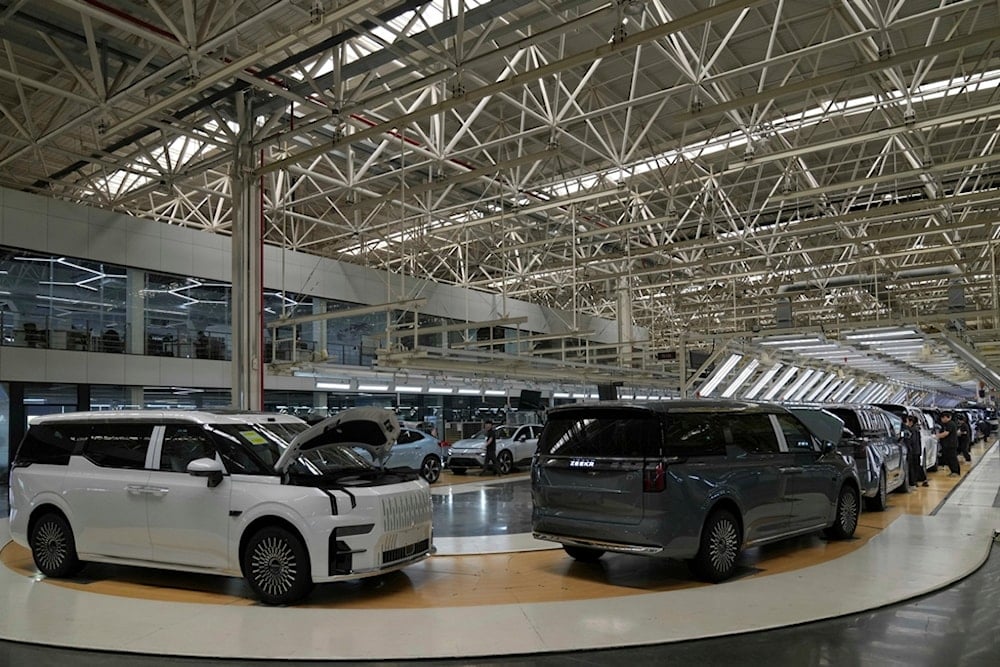China unveils roadmap to stabilize auto sector amid trade frictions
China has unveiled a 2025-2026 roadmap to stabilize its auto sector, aiming to boost EV growth while confronting domestic price wars, looming startup failures, and mounting trade frictions with the EU and Mexico.
-

Workers perform final check on Zeekr EV models at the Chinese automaker Zeekr assembly plant, in Ningbo, east China's Zhejiang Province on April 16, 2025. (AP Photo/Andy Wong)
China has introduced a new roadmap aimed at bolstering its automobile industry as it faces both shrinking export opportunities and a bruising domestic price battle, state media reported Saturday.
The strategy, jointly released by eight government agencies and covering 2025-2026, prioritizes closer monitoring of production costs and price practices, while urging companies to innovate and stimulate domestic demand, according to Xinhua.
Industry forecasts suggest vehicle sales will climb to roughly 32.3 million units this year, a 3 percent rise but slower than the 4.5 percent growth recorded in 2024, data from the China Association of Automobile Manufacturers shows.
EV Turmoil
Authorities have invested heavily in the electric vehicle (EV) industry, making it central to Beijing's industrial policy. The plan projects new energy vehicle sales to grow by 20 percent year-on-year, hitting 15.5 million units in 2025.
But competition at home has proven brutal. Aggressive discounting and trade-in schemes have pushed several startups into collapse, prompting regulators in July to call for an end to what they described as "irrational competition" in favor of more sustainable development.
Read more: Israeli occupation army bans Chinese EVs citing 'espionage' concerns
China's challenges are not confined to the domestic arena. The European Union launched an anti-subsidy investigation in 2023 into Chinese-made electric vehicles, arguing state support allows them to undercut rivals. As part of its response, Brussels has imposed provisional duties, raising the cost of Chinese EVs in the European market.
Mexico has also moved to shield its car industry, proposing a sharp increase in tariffs on Chinese imports, up to 50 percent from the current 15-20 percent, sparking strong criticism from Beijing. Mexico justified the step as necessary to protect local producers and address goods entering the country below reference prices, though analysts note US pressure also played a role in the decision.
Regulatory Clampdown
At the same time, Beijing has tightened its grip on the sector. Regulators recently launched a three-month campaign to curb false online marketing and warned automakers to rein in excessive price-cutting.
Industry leaders such as BYD predict a wave of consolidation that could wipe out most of China’s more than 100 EV startups, leaving only a handful of players strong enough to survive by 2030.
New safety standards for batteries and tighter rules on autonomous driving are also on the horizon, signaling a push to balance rapid growth with quality and long-term stability.

 3 Min Read
3 Min Read








